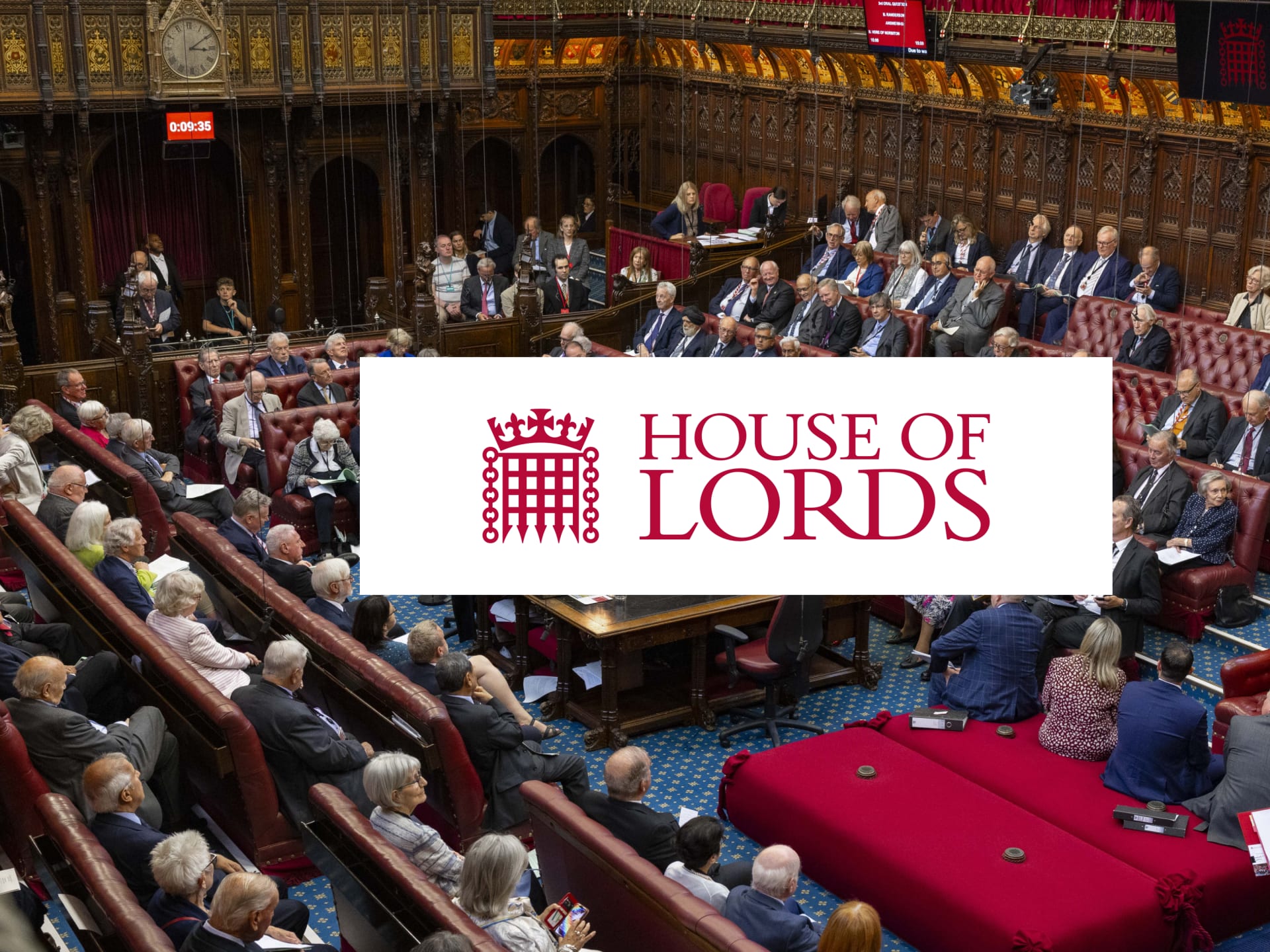Garfield AI Featured in Bloomberg Law on AI Opening Access to Affordable Legal Help
Bloomberg Law highlights Garfield AI's innovative per-document pricing model as a pioneering example of how AI-powered technology can make legal services accessible and affordable, with Philip Young explaining why regulated AI solutions are essential for expanding access to justice.

London, 25 August 2025 – Garfield AI has been featured in Bloomberg Law's examination of how AI-powered technology is opening potential for affordable legal help, titled "AI-Powered Tech Opens Potential for Affordable Legal Help." The article highlights Garfield's innovative per-document pricing model and regulatory approval as a pioneering approach to expanding access to justice through AI technology.
Addressing the Access to Justice Challenge
The Bloomberg Law article examines a critical question facing the legal technology sector: will AI democratize legal services or primarily benefit wealthy clients who can already afford lawyers? While venture capitalists pour investment into legal tech for large corporations, companies like Garfield AI are demonstrating how AI can expand access for individuals and small businesses typically priced out of traditional legal services.
As James Sandman, president emeritus of the Legal Services Corporation, noted in the article: "Generative AI has more potential to improve access to justice than any other development I've ever seen."
Garfield's Innovative Pricing Model
Bloomberg Law specifically highlighted Garfield AI's distinctive pricing approach as an example of creative strategies to make AI legal tools affordable. Rather than charging subscription fees that can create barriers to entry, Garfield charges on a unit cost basis, per document, with prices starting from just £2 (approximately $3) per document.
This per-document pricing model removes financial barriers for small businesses needing occasional legal assistance with debt recovery. Users pay only for what they need, when they need it, making legal help accessible even for single-invoice disputes that would be completely uneconomical under traditional law firm pricing.
Philip Young, CEO and founder of Garfield AI, explained the platform's focus: Garfield "provides AI-assisted legal documents for debt collection in England and Wales" and has "secured regulatory approval to assist in small claims court."
Why Regulation Matters
A key theme in the Bloomberg Law article is the importance of regulated AI legal solutions. Philip Young provided crucial perspective on why regulatory approval matters for access to justice:
"If people don't have access to a regulated solution, they'll just go to an unregulated thing," Philip told Bloomberg Law.
This observation highlights a critical market dynamic: the access to justice gap won't disappear simply because traditional legal services remain unaffordable. Instead, people will turn to whatever solutions are available, regulated or not. By proactively seeking SRA authorization, Garfield ensures users benefit from regulatory oversight and consumer protection rather than turning to unregulated alternatives.
Garfield's status as the first AI-driven law firm approved by the Solicitors Regulation Authority demonstrates that responsible innovation and affordability need not be in conflict. The platform delivers accessible pricing while maintaining professional standards and accountability.
The Cost Challenge in Legal AI
The Bloomberg Law article acknowledges a fundamental economic challenge: generative AI is expensive to operate. Legal technology vendors must develop creative strategies to offer affordable or free services while covering substantial infrastructure and computational costs.
Different companies are taking different approaches:
Free Enterprise Tools
Some companies like Everlaw and Robin offer free versions of their enterprise software, betting that free users will eventually convert to paid plans or that paying enterprise clients will subsidize free access for those who cannot afford legal help.
Per-Use Pricing
Garfield's per-document model represents another approach: charging small amounts per transaction rather than recurring subscription fees, making the service accessible while sustainable.
Targeted Solutions
Tools like Depositron and Roxanne focus on specific high-need areas like tenant rights, providing AI assistance without direct lawyer involvement for populations that typically cannot access legal representation.
Expanding the Market vs. Serving the Wealthy
The article explores concerns that AI legal technology might primarily benefit large corporations and wealthy individuals who already have access to legal services, potentially widening rather than narrowing the justice gap.
Garfield's approach directly addresses this concern by focusing on a market segment traditionally underserved by law firms: small businesses with debt claims under £10,000. These businesses are owed billions in unpaid invoices but cannot economically pursue claims through traditional legal routes.
By making debt recovery affordable and accessible, Garfield expands the legal services market rather than simply redistributing existing work among established firms and their existing client base.
Real-World Impact
The Bloomberg Law coverage reflects growing recognition of Garfield's practical impact on access to justice, as also noted by the Financial Times and Forbes. The platform addresses a £20 billion problem (unpaid invoices owed to UK SMEs) by transforming the economics of debt recovery.
For businesses like Philip's brother-in-law Andy (a plumber near Sheffield who inspired Garfield's creation), inexpensive per document represents a trivial cost compared to traditional legal fees. This pricing makes pursuing legitimate claims economically rational rather than writing them off as unavoidable losses.
Part of a Broader Movement
Bloomberg Law's article positions Garfield within a broader movement of legal technology companies working to expand access to justice. While approaches vary, from free tools to per-use pricing to targeted solutions for specific populations, the common thread is using AI to serve people who traditionally cannot access legal help.
This movement represents a fundamental reimagining of legal service delivery, moving beyond the assumption that legal help must be expensive and inaccessible for most people.
The Venture Capital Paradox
The article notes that while venture capital investment in legal technology is substantial, much of this funding flows to tools serving large corporations and law firms. This creates a paradox: the capital needed to develop sophisticated AI legal tools often comes from investors expecting returns from wealthy clients rather than underserved populations.
Garfield's approach, building a sustainable business model around affordable pricing for small businesses, demonstrates that serving the access to justice market can be economically viable without requiring users to pay traditional law firm rates.
Regulated vs. Unregulated Solutions
Philip Young's observation about regulated versus unregulated solutions highlights a critical policy consideration. If regulated legal technology remains inaccessible due to cost, people facing legal problems will turn to unregulated alternatives that may lack quality controls, accountability, or consumer protection.
By combining affordable pricing with regulatory approval, Garfield provides a model for how legal technology can expand access while maintaining appropriate safeguards. This approach serves both consumer protection and access to justice objectives simultaneously.
Read the Full Article
The complete Bloomberg Law article, "AI-Powered Tech Opens Potential for Affordable Legal Help," is available at news.bloomberglaw.com.
About Garfield AI Garfield AI is the world's first AI-driven law firm, approved by the Solicitors Regulation Authority. The platform helps businesses recover small debts through affordable per-document pricing that makes legal services accessible to SMEs typically priced out of traditional legal help. From letters before action to court claim forms, Garfield guides users through each step. Founded by senior City litigation lawyer Philip Young and quantum physicist Daniel Long, Garfield demonstrates how AI can expand access to justice through innovative pricing and responsible regulation. Visit garfield.law to learn more.
About the Author

Hugo Rawling
Legal Engineer
In other news


